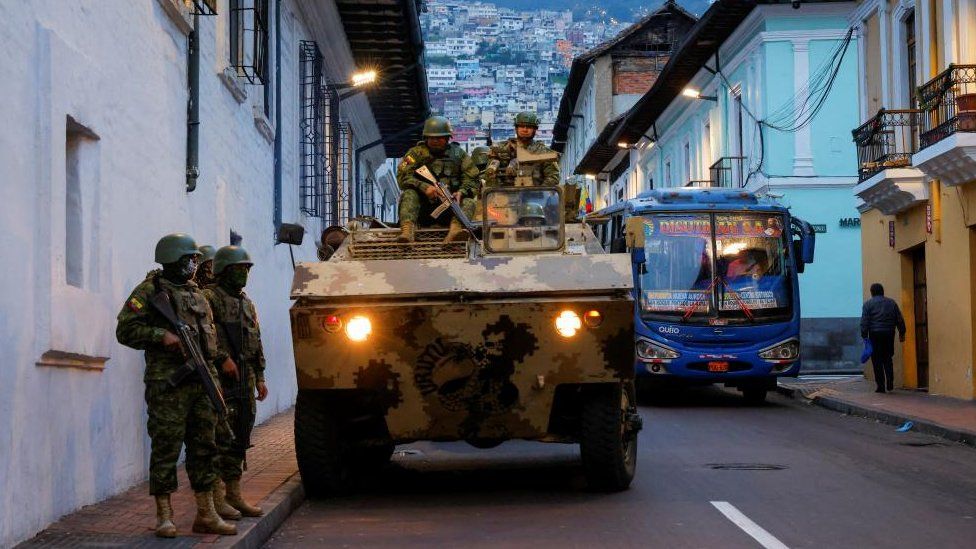-

-
-
Loading

Loading

The recent events that have unfolded in Ecuador have highlighted the country's descent into violence. Journalists were forced to kneel at gunpoint while broadcasting live, and police officers were kidnapped and pleaded for their lives. President Daniel Noboa has declared an "armed internal conflict" and has ordered the armed forces to restore order in the country. The violence began when notorious gang leader Adolfo Macías Villamar, known as "Fito," escaped from La Regional prison in Guayaquil. News of his escape triggered riots in multiple prisons across Ecuador, with prison guards being taken hostage. Many prison wings in the country are controlled by inmates themselves, with cells being rented out and illegal activities being conducted. The power balance between rival gangs within the prisons can quickly turn deadly, as seen in previous incidents where gang fights have led to numerous fatalities. Ecuador's proximity to major cocaine-producing countries like Colombia and Peru has made it an attractive transit country for drug shipments. Transnational criminal organizations have taken advantage of this, using Ecuador's ports to transport drugs internationally. President Noboa has declared a state of emergency and imposed a nationwide curfew to combat the violence. He has authorized the deployment of soldiers to restore order in prisons and assist the police. However, the gangs have responded with threats and kidnappings, escalating the situation further. Noboa has labeled 22 gangs as "terrorist organizations" and vowed not to negotiate with them. These challenges pose a significant test for President Noboa, who has only been in office for two months. He was elected on a platform of combating the gangs responsible for the assassination of a presidential candidate. As the violence spills into the streets, many Ecuadorians are living in fear and reluctant to leave their homes.